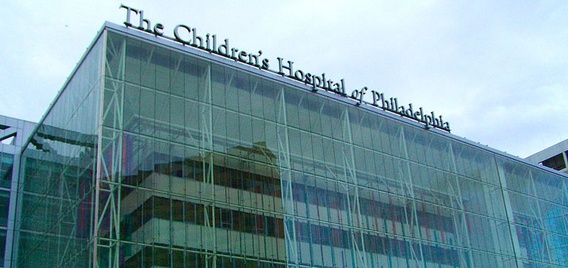Most of these $1 billion-plus projects were planned before the pandemic and will help provide much-needed beds and healthcare services.
When the coronavirus pandemic first broke out in the U.S., “flattening the curve” became the mantra for helping to support hospitals and save beds for patients who most needed them. Some hospitals even wrapped up parts of construction early to make more room for COVID-19 patients.
Construction Dive has tracked some of the largest medical center projects that have been announced, funded or underway — often before the COVID-19 pandemic. Here is a look at the biggest healthcenter projects across the country.
Children’s Hospital of Philadelphia
Location: Philadelphia
Cost: $3.4 billion

In response to overcrowding, the Children’s Hospital of Philadelphia announced plans in May to pump $3.4 billion into new construction, The Philadelphia Inquirer reported. Included in those plans, CHOP intends to construct a 22-story inpatient tower, adding 300 beds, with room to add 200 more as needed.
The tower will cost $1.7 billion and open in 2027, and CHOP has plans for three additional buildings.
Ohio State’s Wexner Medical Center
Location: Columbus, Ohio
Cost: $1.79 billion

The $1.79 billion Ohio State Wexner Medical Center Inpatient Hospital is scheduled to open in early 2026. The 1.9 million-square-foot facility is the largest single-facility project ever undertaken at Ohio State University, and will have up to 820 beds in private room settings, for the training of future physicians. A Walsh/Turner Joint Venture is serving as construction manager on the project.
Harborview Medical Center
Location: Seattle
Cost: $1.74 billion

In January, the Harborview Medical Center’s planning group recommended and backed plans for $1.74 billion in upgrades for the Seattle hospital, The Seattle Times reported. Recommendations and plans include $952 million for a new hospital tower, a $79 million behavioral health building and various other renovations. Harborview is owned by King County and operated by the University of Washington.
King County voters will decide in the Nov. 3 election whether the project can move ahead. Proposition No. 1 would approve bonds to fund the project and would authorize property-tax increases to repay the bonds over 20 years.
Indiana University Health
Location: Indianapolis
Cost: $1.6 billion

Indiana University Health announced plans in August to build a new $1.6 billion hospital in downtown Indianapolis. The new hospital will be just south of IU Health’s 100-year-old Methodist Hospital.
The new hospital’s preliminary blueprint lays out three glass-fronted towers, each about 10 stories with a rooftop helipad and enclosed walkways to nearby buildings and a parking garage. The towers will hold up to 576 private patient beds and outpatient care areas. Parts of the Methodist complex will connect to the new hospital via walkways, providing more beds and exam rooms.
When complete in 2026, the new, 44-acre hospital will be consolidated with the Methodist Hospital and will also house IU’s School of Medicine.
UCSF Helen Diller Medical Center
Location: San Francisco
Cost: $1.2 billion

In 2018, the University of California, San Francisco received a $500 million donation from the Helen Diller Foundation to help fund the $1.2 billion hospital at the University’s Parnassus Heights campus.
In July, UCSF announced Herzog & de Meuron as the lead designer and HDR as the architect of the hospital. When the project is finished in 2030, it will increase the number of beds in the UCSF system by 42%.
Brooklyn Hospital Center
Location: New York City
Cost: $1 billion

Brooklyn Hospital Center has proposed a $1 billion plan to redevelop its 175-year-old facility. The project requires the demolition of existing buildings and replacing them with about 800,000 square feet for hospital use. That space will include new cancer, ambulatory surgery and outpatient diagnostic centers while also expanding the emergency room, maternity ward and cardiac cancer and breast cancer facilities.
The proposal would also add new office spaces for doctors and healthcare professionals as well as about 1,000 units of affordable housing, along with mixed-income units, geared mostly for hospital staff and nearby residents.
City of Hope National Medical Center
Location: Duarte, California
Cost: $1 billion

In May, the City of Hope National Medical Center acquired a 190,000-square-foot office space and surrounding acreage in Irvine, California. City of Hope has plans to immediately convert the acquisition into a $1 billion comprehensive cancer center, the first outside of the main Duarte, California, campus.
City of Hope is developing the campus in partnership with mixed-use owner and developer FivePoint. The 11-acre campus is expected to open in 2025, and will include an outpatient center for screenings and a clinical research center.
Mount Sinai Beth Israel
Location: New York City
Cost: $1 billion

In February, a state planning council approved Mount Sinai Health System’s plan to invest $1 billion in upgrades and expansions in downtown New York City. Work is planned for the New York Eye and Ear Infirmary, in addition to a replacement facility for Mount Sinai Beth Israel and a behavioral health center.
The replacement facility, for which the Health System has earmarked $600 million, will have 70 beds and a new emergency room two blocks from the existing Manhattan location. The new behavioral health center will cost about $140 million and add 135 beds.



